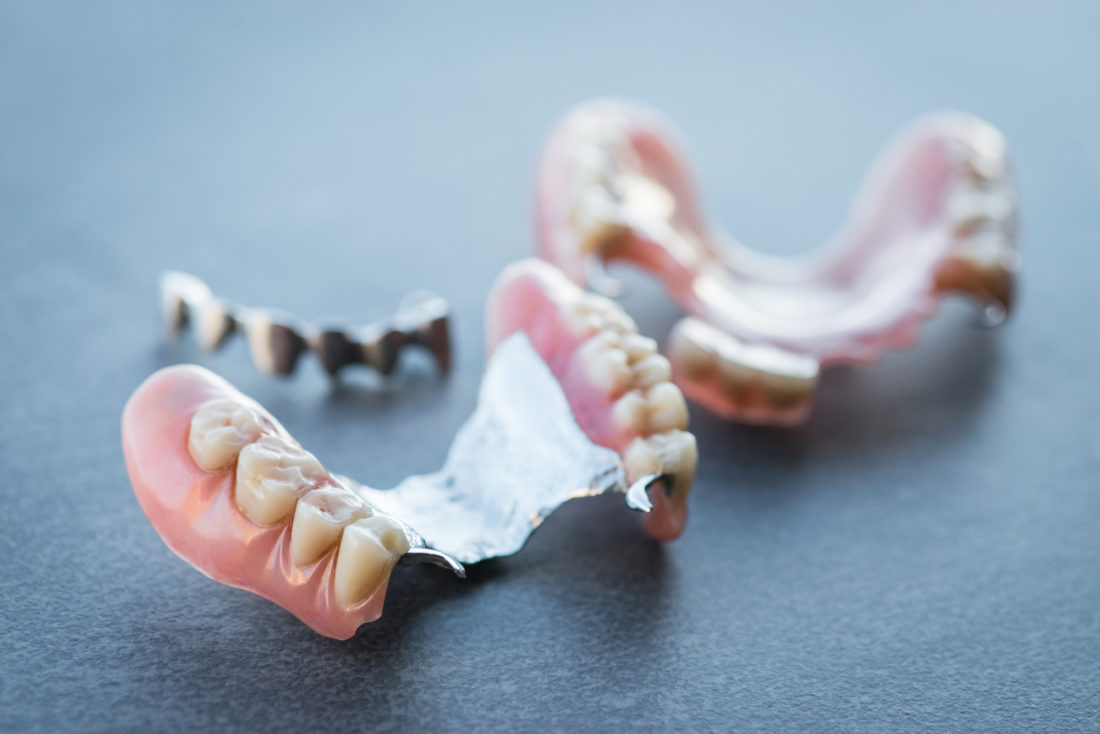Bridge vs. Denture: What is the Best Way to Replace Lost Teeth?
 Are you missing a tooth due to an injury or dental issue? If so, you’re among the whopping 120 million Americans missing one or multiple teeth.
Are you missing a tooth due to an injury or dental issue? If so, you’re among the whopping 120 million Americans missing one or multiple teeth.
Luckily, you have several options to improve your aesthetics, speak well, and chew food normally.
Popular choices include fixed bridges that replace a few teeth, removable partial and full dentures, and dental implants. Ultimately, your decision depends on your budget, tooth replacement needs, preferences, and oral health.
Read on to learn about a bridge vs. denture and explore some considerations for these options.
Table of Contents
Understanding Dental Bridges
Often made of porcelain or metal, a dental bridge includes one or more false teeth cemented together. Usually, it has a maximum of three or four false teeth.
Your dentist can use crowning to attach the bridge to your natural teeth to fill the gap where you’ve got missing teeth. They can also use dental implants for stronger support.
The benefit of this tooth replacement option is that it provides an aesthetic and comfortable way to replace a few teeth. You can opt for a porcelain bridge to have a natural-looking result. Bridges can also help with reducing bone loss from missing teeth.
The major disadvantage of a teeth bridge is that the teeth supporting the bridge can become worn or damaged over time. The attachment can also make it easier for tooth decay to occur. In some cases, a dental bridge may not work for you if your neighboring teeth aren’t healthy enough to support the fixture.
Considering Dentures
Unlike a teeth bridge, dentures can replace either a few teeth or a whole arch. They are also often removable for cleaning and sleeping.
When you need to more teeth replaced than a bridge can support, you can opt for a removable partial denture that attaches to some of your existing teeth. If you need a whole arch of teeth replaced, you can opt for a removable denture or a permanent version supported with implants.
Dentures come with the benefit that they often run cheaper than bridges and dental implants. You can find long-lasting dentures that look natural and help you with both eating and speaking. They’ll also help make your face look more natural like when you had your full set of teeth.
The downside of dentures is that they take time to get accustomed to. You might find it harder to eat certain foods when you wear dentures, and you may find the cleaning process more of a hassle. If you opt for a partial denture, you can cause some wear to the supporting teeth like you can with a bridge.
Bridge vs. Denture: Making Your Decision
When trying to decide between a bridge vs. denture, it helps to consider how many teeth need replaced, the health of your existing teeth, and your preferences. Your dentist will also help you make the best choice.
When you’re replacing teeth in different places in the arch, a partial denture might be a cheaper alternative to multiple dental bridges. But if you only have a few missing teeth in the same place, a bridge can provide a permanent, comfortable option for you.
Be sure to go look at our other posts about health and dentistry.









